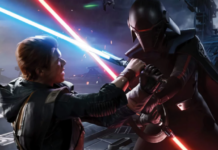Nintendo's new Wii U console failed to provide a boost in holiday sales for retail giant GameStop, the company reported today. In the company's 2012 Holiday Sales Report, GameStop noted "mixed results" during the holiday selling period. Although the Wii U's launch in the U.S. was respectable (400,000 units sold), it wasn't enough to counter effects of "low store traffic."
"Our successful Wii U launch, strong digital growth and continued momentum in the mobile space were countered by a decline in store traffic,” said Paul Raines, chief executive officer.
For the nine-week holiday period ended Dec. 29, 2012, new hardware sales decreased 2.7%. GameStop managed to sell just 320,000 Wii U units worldwide. Several analysts have concluded the Wii U's launch to be "slightly disappointing." It wasn't just consoles feeling the pinch this year. GameStop revealed that sales of new video game software also decreased 5.1%.
Pre-owned titles didn't fair much better either at the retailer. Normally a cornerstone for the retailer, pre-owned sales declined 15.6%. GameStop attributed this to "limited inventory due to fewer new titles released throughout 2012 and less promotional activity negatively impacted sales compared to last year."
Overall, total global sales for GameStop for the holiday period were $2.88 billion, a 4.6% decrease compared to the 2011 holiday sale period. “As a result, GameStop expects its fourth quarter 2012 earnings per share results to be at the low end of its current guidance range," added Raines. "Our strong market share positions us well for the future, and we look forward to new product launches in 2013.”
So why the slow foot traffic? Earlier this week, industry analyst Michael Pachter released a preview note of the NPD Group's December 2012 sales report (due out on Thursday), attributing the decline in console software sales to "continuing gamer fatigue." He also placed a good deal of blame on Nintendo for its "underwhelming launch" for the Wii U and the company's "continued weakness" in general.
With the Wii U failing to ignite a spark in the slumping gaming industry, all eyes are now on Microsoft and Sony which are expected to unveil new consoles this year. Both companies have yet to say anything officially, but the past few months have been rife with rumors and speculation. Consumers seem to be ready for the next-generation.







